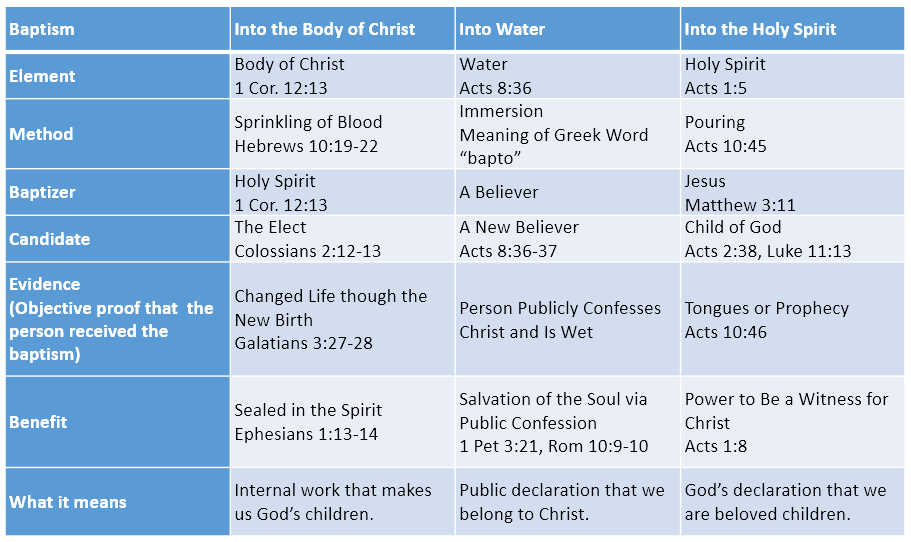
Is it realistic to be optimistic as we hurtle toward the Second Coming of Christ and the conclusion of the “last days”? Many people today believe we are on the precipice of descending into the Great Tribulation. Jesus warned his disciples…
“For then there will be a great tribulation, such as has not occurred since the beginning of the world until now, nor ever will. Matthew 24:21 (NASB95)
There are two principal ways of viewing what is going to happen on planet earth prior to Jesus’ Second Coming: the futurist explanation and the partial preterist viewpoint. The futurist position, which gained prominence in the early 1900s with the publication of the Scofield Reference Bible, holds that almost every one of the the promises-prophecies of the Lord regarding the “end times” is yet to take place. The partial preterist position, which was held by the church fathers over the ages, believes that most prophesied events have already taken place, chiefly at the fall of Jerusalem in 70 AD, but some things remain in the future. I hold to the partial preterist viewpoint, but I will not be attempting to “prove” its validity in this article. If you wish to explore this position in depth, I recommend reading Victorious Eschatology by Eberle and Trench.
From the context, Jesus’ words quoted above clearly refer to the fall of Jerusalem, which was the most horrific thing that ever happened to the Jews with respect to intensity of suffering over a short period of time. God’s wrath against the Jewish nation for rejecting and crucifying their Messiah was poured out, just as Jesus prophesied.
As a result, this generation will be held responsible for the murder of all God’s prophets from the creation of the world—51 from the murder of Abel to the murder of Zechariah, who was killed between the altar and the sanctuary. Yes, it will certainly be charged against this generation. Luke 11:50–51 (NLT)
Jesus warned believers to leave the city when they saw the abomination of desolation (the Roman army) surrounding the city, which history said they obeyed by fleeing to surrounding areas before the Romans sealed off the city, thus avoiding the starvation and carnage that was experienced by those remaining in the city.
But when you see Jerusalem surrounded by armies, then recognize that her desolation is near. 21 “Then those who are in Judea must flee to the mountains, and those who are in the midst of the city must leave, and those who are in the country must not enter the city; 22 because these are days of vengeance, so that all things which are written will be fulfilled. Luke 21:20–22 (NASB95)
If as I believe, the Book of Daniel is primarily concerned with the first coming of the Messiah, his rejection and crucifixion, the rejection of the gospel by the Jews by and large, and the subsequent destruction of the temple and the city of Jerusalem, then most of the futurist version of the end times (eschatology) falls apart.
The first coming of the Messiah completely surprised all the most learned Bible scholars and students. Only those who hearts were open to God’s surprise introduction of his promised one were able to perceive his true identity. Why would we expect his Second Coming to be any different? God loves to surprise us. His ways and thoughts are so very different from ours, that we are always surprised by how and when he does things.
I feel certain that the Second Coming and everything associated with it will be very different from what is generally expected.
The futurist position holds that things will get darker and bleaker as the Second Coming approaches as we enter a time of great persecution with the advent of the one called the “antichrist.” Many futurists believe that the church will be “raptured” (miraculously caught up to be with God) just prior to this time of evil. In fact, many pin their hope on this happening. There may yet come upon God’s people in the West a significant level of persecution, but can we overcome our cultural bias long enough to realize that God’s people around the world have been going through persecution and pressure (the meaning of the Greek word translated “tribulation”) for centuries? Are we in the West the only ones that God has promised to protect from the predicted impending horror? What about those who died in the killing fields of Cambodia or the gulags in Soviet Russia? What about those who were put to death in Muslim nations or during the waves of Roman persecution? What about the many who were martyred by the Roman Catholic Church because they would not recant their stand on the biblical doctrine of justification by faith alone during what is called the Counterreformation?
We in the West are often guilty of a kind of historical myopia that cannot see beyond our own experience.
But what if the partial preterist view is true? What if instead of being on the precipice of the Great Tribulation, which already took place in 70 AD, we are on the verge of something wonderful instead? What if we are about to see God pour out his Spirit on “all flesh,” as prophesied in Joel 2:28? What if we are going to see the knowledge of God’s glory fill the earth as the water covers the sea? (Habakkuk 2:14) What if God is about to turn the tide, much as he did when he drowned Pharaoh’s army in the Red Sea or when he raised Christ from the grave?
Jesus rose from the dead as the glorious and powerful Son of God and Lord of Lords, having disarmed and humiliated Satan and all his servants. (Colossians 2:15) Nevertheless, he left much for us to accomplish on his behalf. After a short time here on earth with his disciples, he ascended to heaven, where he sits at God’s right hand waiting for his Abba Father to complete the crushing of his enemies.
The LORD said to my Lord, “Sit in the place of honor at my right hand until I humble your enemies, making them a footstool under your feet.” Psalm 110:1 (NLT)
Jesus and the early church understood this verse to apply to Jesus (Mark 12:36 and Acts 2:34-35), and so should we. The time since Jesus’ ascension and the pouring out of the Spirit at Pentecost has been a time of Jesus’ waiting for his Father’s perfect timing to complete the process of crushing the head of the serpent. (Genesis 3:15) We, the church, will participate in that final victory, as taught by the apostle Paul.
The God of peace will soon crush Satan under your feet. The grace of our Lord Jesus Christ be with you. Romans 16:20 (ESV)
Since the fall of man in the garden, unregenerate humanity, under the inspiration of the chief rebel, Satan, has been trying to throw off God’s rule and be his own god. Babel was a first concerted effort to pull this off, which God crushed.
Today we see another, perhaps final, last days push toward a globalist anti-God government, but the Lord who sits in the heavens will not have it. He laughs at the futility of it all, and so should we.
Why are the nations so angry? Why do they waste their time with futile plans? 2 The kings of the earth prepare for battle; the rulers plot together against the LORD and against his anointed one. 3 “Let us break their chains,” they cry, “and free ourselves from slavery to God.” 4 But the one who rules in heaven laughs. The Lord scoffs at them. 5 Then in anger he rebukes them, terrifying them with his fierce fury. 6 For the Lord declares, “I have placed my chosen king on the throne in Jerusalem, on my holy mountain.” Psalm 2:1-6 (NLT)
Jesus is the appointed king who currently rules from heaven. His rule will soon be extended and enforced more fully on the earth as well, just as he taught us to pray, thy will be done on earth as it is in heaven.
God will not allow the nations to succeed in their desire to rid themselves of his appointed king. No matter what plans the devil and his minions put together, it will all come to nothing.
The LORD frustrates the plans of the nations and thwarts all their schemes. 11 But the LORD’s plans stand firm forever; his intentions can never be shaken. Psalm 33:10-11 (NLT)
Our God is shaking everything that can be shaken so that we will finally realize that our confidence must be in Christ alone. (Hebrews 12:27-28)
Those who willingly submit to Christ’s rule will be forgiven for previously participating in the global rebellion and made right with God and brought into his forever family.
Those who refuse to accept this wonderful option will be condemned. At some point, every knee will bow and every tongue confess that Jesus is Lord! It is far better to do it now willingly than later under duress.
Therefore, God elevated him to the place of highest honor and gave him the name above all other names, 10 that at the name of Jesus every knee should bow, in heaven and on earth and under the earth, 11 and every tongue confess that Jesus Christ is Lord, to the glory of God the Father. Philippians 2:9-11 (NLT)
This is our glorious future, but today we are in the midst of a global “mopping up” operation.
The war was officially won when Jesus rose from the dead, and it will be officially concluded when he returns as the glorious Son of Man to judge the living and the dead. In the meantime, we must encourage ourselves with the thought that “God’s got this.” We simply have no real idea of just how glorious and powerful he is and how completely able he is to humble and defeat Christ’s enemies. (Ephesians 1:19)
We cannot allow ourselves to be mesmerized and paralyzed by fear of what may be coming upon the world.
Jesus asked if he would find faith on the earth when he returned. (Luke 18:8) Who will he find who has kept his or her eyes firmly on God and his promises? Who will he find faithfully carrying out the Great Commission? Who will be engaged in extending his kingdom? Let us not be among them who have given up and “forted” up in our local churches awaiting the rapture. Let us continue to reach out to those around us with the gospel. Let us expend ourselves in training the next generation. Let us involve ourselves in practical matters of governance, rather than ceding that arena to the godless.
Let me conclude with the following verse.
Come, see the glorious works of the LORD: See how he brings destruction upon the world. 9 He causes wars to end throughout the earth. He breaks the bow and snaps the spear; he burns the shields with fire. 10 “Be still, and know that I am God! I will be honored by every nation. I will be honored throughout the world.” 11 The LORD of Heaven’s Armies is here among us; the God of Israel is our fortress. Psalm 46:8-11 (NLT)
Remember: the devil is a liar. He wants us to believe the worst. He is continually broadcasting his narrative to the world. But God is greater.
No matter how dark things may seem, we who serve Jesus have a glorious future.
Yes, we must be prepared to endure suffering, and none of us knows exactly how all this will play out; but, let’s be open to the idea that it may be quite different than what we expect. All we know for sure is that God is in control and his plan is glorious. His Son will be exalted in the earth, and we who serve him will rule and reign with him forever!









 The baptism into the body of Christ is what happens when we are born again. The Holy Spirit plunges us into Christ, and we become one with him. The evidence is a changed life. Baptism into water by immersion is what another believer does to us, giving us an opportunity to publicly proclaim and acknowledge what God has already done in the Spirit and is our public declaration of allegiance to Jesus. The evidence is that we are wet. Jesus is the One who baptizes us into the Spirit by an outpouring to empower us to be bold witnesses. This outpouring may be likened to standing under a waterfall or a large bucket of water as in the picture above. We are effectively immersed, but its purpose is not identification. Instead, we have the Spirit upon us in power for ministry. The evidence of the baptism in the Spirit is speaking in tongues and prophecy. The Holy Spirit baptism is also God’s declaration to the world that we are his children.
The baptism into the body of Christ is what happens when we are born again. The Holy Spirit plunges us into Christ, and we become one with him. The evidence is a changed life. Baptism into water by immersion is what another believer does to us, giving us an opportunity to publicly proclaim and acknowledge what God has already done in the Spirit and is our public declaration of allegiance to Jesus. The evidence is that we are wet. Jesus is the One who baptizes us into the Spirit by an outpouring to empower us to be bold witnesses. This outpouring may be likened to standing under a waterfall or a large bucket of water as in the picture above. We are effectively immersed, but its purpose is not identification. Instead, we have the Spirit upon us in power for ministry. The evidence of the baptism in the Spirit is speaking in tongues and prophecy. The Holy Spirit baptism is also God’s declaration to the world that we are his children.
